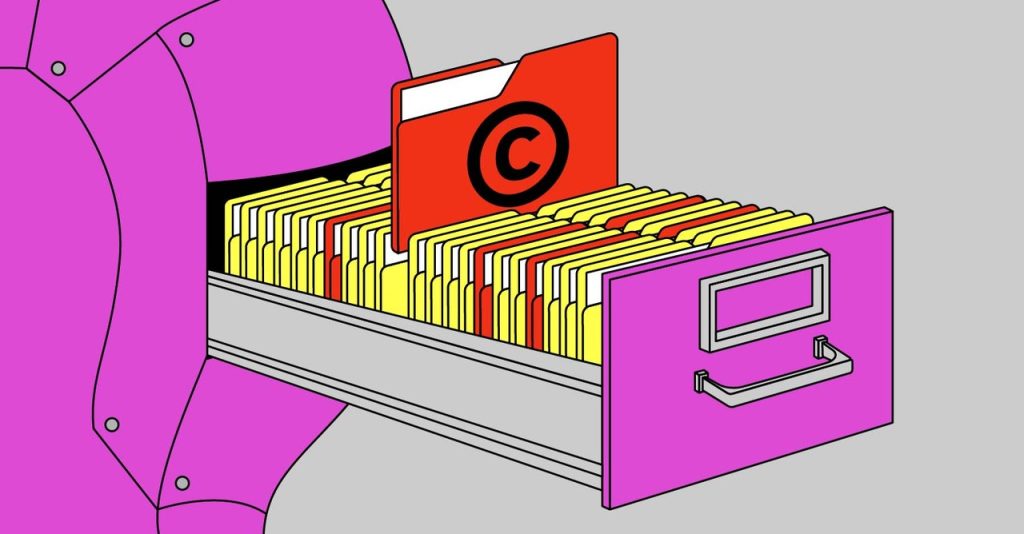The Challenges of Protecting Copyrighted Material in the Age of AI
Exploring the GPT Store
In recent months, Morten Blichfeldt Andersen has dedicated a significant amount of time to exploring OpenAI’s GPT Store. This digital marketplace for custom-made AI bots has grown to include a wide array of practical and occasionally eccentric AI tools. From cartoon generators that produce illustrations reminiscent of The New Yorker and vibrant anime stills to programming and writing assistants that streamline the creation of code and text, the store offers a diverse selection. One notable example is a bot designed to mimic the writing style of renowned author Stephen King.
Legal Battles Over AI and Copyright
When WIRED attempted to deceive the King-inspired bot into disclosing the ”secret to writing a bestseller,” it cleverly evaded the question, likely aware of the numerous lawsuits OpenAI is currently facing. These legal challenges, which allege copyright infringement, have been brought forth by various entities, including The New York Times and several groups of fiction and nonfiction authors, such as the well-known writer George R.R. Martin.
The Role of the Digital Millennium Copyright Act
The Digital Millennium Copyright Act (DMCA) has become a crucial tool for copyright enforcement in the digital age, particularly in the context of AI-powered chatbots offered in marketplaces like the GPT Store. This legislation provides copyright holders with a relatively efficient means to request the removal of their work when it is used online without their consent, through the use of DMCA takedown notices.
Praxis and the Danish Rights Alliance
After discovering instances of Praxis textbooks in the GPT Store, Blichfeldt Andersen submitted DMCA takedown notices to OpenAI. However, he only received a response after seeking assistance from the Danish Rights Alliance (DRA), an organization that represents the interests of creative professionals in Denmark. The DRA is known for its assertive approach to safeguarding members’ copyrights in the era of AI, as demonstrated by its successful removal of a collection of over 196,000 books used for generative AI training from the internet last year.
“They have been pretty quick to remove infringing GPTs that we have reported to them. There needs to be better tools at the disposal of rights holders to search for these infringing GPTs.”
Thomas Heldrup, the DRA’s head of content protection and enforcement, has been at the forefront of the organization’s AI-related initiatives. He played a key role in addressing the GPT Store issue, filing complaints on behalf of Praxis that resulted in OpenAI removing bots deemed infringing by the publisher. Despite OpenAI’s responsiveness, Heldrup believes that the company should implement more robust tools for rights holders to identify infringing GPTs.
The Potential for Legal Action and the Need for Better Screening
Blichfeldt Andersen has indicated that Praxis is considering legal action against OpenAI if the conditions on the GPT Store do not improve. He suggests that OpenAI and other AI developers should implement more comprehensive systems to scan for copyrighted material in uploaded RAG content, similar to YouTube’s Content ID system. While OpenAI did not directly address whether it plans to introduce such a system, the company’s representative, Wood, informed WIRED that it does proactively screen GPTs.
Emerging Solutions for Detecting Copyright Infringement
As the need for better copyright protection in the AI industry grows, startups are emerging to help AI companies detect infringing output. Anand Kannappan, CEO and founder of Patronus AI, states that their recently launched Copyright Catcher service, designed to identify copyrighted text, could effectively detect potential infringement in custom GPTs.
The Debate Over Fair Use
Although OpenAI has complied with some DMCA takedown requests targeting its GPT Store, some intellectual property experts argue that the concept of fair use could protect certain GPTs that rely on copyrighted works.
“I think it would be really hasty to say you can’t upload anything that’s copyrighted to these tools without permission, because that rules out hugely important education and research functions.”
Meredith Jacob, the project director of copyright and open licensing at American University Washington School of Law, believes that creating GPTs to help students understand their textbooks could easily be protected by fair use.
The Difficulty of Identifying Infringements
Without a straightforward method for external parties to view the supplementary files uploaded to the GPT Store’s bots, copyright holders concerned about infringements are left with two options: trust that OpenAI’s automated systems are identifying violations or invest significant time in investigating each suspicious bot individually. As Blichfeldt Andersen puts it, “It’s like finding a needle in a haystack.”

3 Comments
Oh, so now AI’s stepping on creatives’ toes too? Let the battles begin.
V1nce: So, AI’s the new boogeyman for copyright infringement? Brace yourselves, creators.
Isn’t it about time artists got their fair share? This debate is heating up!